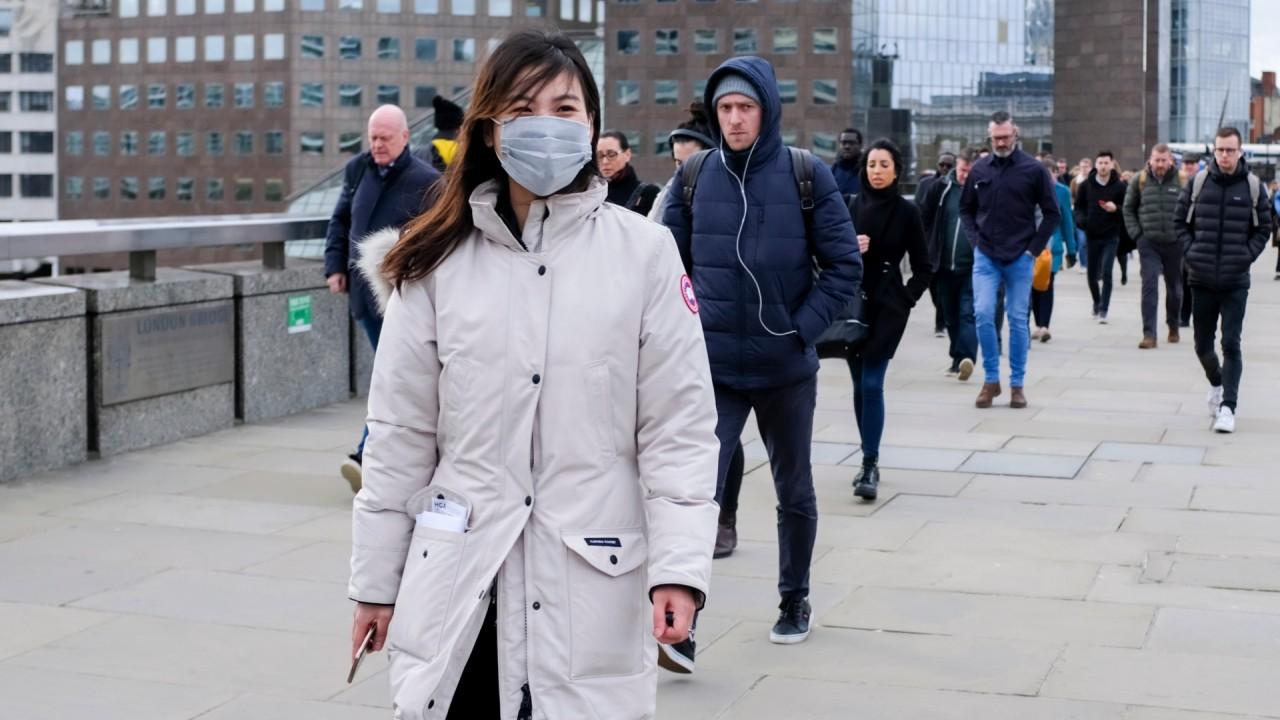Coronavirus ‘super-spreaders’: What are they and how do they work?
Here’s what you need to know about ‘super-spreaders’ and how to avoid being one
Get all the latest news on coronavirus and more delivered daily to your inbox. Sign up here.
As the coronavirus continues to spread, so are stories of events where the virus was passed to large groups of people or individuals who passed it to large numbers of people.
The term for those events or people is a “super-spreader.”
“Super-spreader” is a conversational term and not a scientific phrase, Dr. Robert Amler, the dean of New York Medical College’s School of Health Sciences and Practice, told FOX Business.
“It's more of a colloquial term that epidemiologists and public health responders use to describe a situation where someone in a population or in a community seems to have spread the disease a lot more than most of the others,” Amler said.
CORONAVIRUS PASSED AT CONNECTICUT PARTY SPREAD TO SOUTH AFRICA, OTHER PARTS OF THE STATE
“Somebody who is just spreading contagion at a much greater rate than the average person who is infected,” he added.
The World Health Organization doesn’t use the term “super-spreader,” according to Reuters, because it “implies that a particular person may be inherently more able than others to pass on disease.”
In fact, there isn’t any evidence to prove that someone is inherently more able to pass on a disease. Instead, Amler said, someone could be a “super-spreader” for a variety of reasons.
Because COVID-19 is known to spread through droplets, someone who is sick and who coughs “very vigorously and at a very high frequency” could be a “super-spreader” because the droplets from their cough “generate more and smaller droplets.”
“Smaller droplets travel farther because gravity doesn't catch them as well,” Amler said. “And so they create a fog or a mist of droplets around them at a much greater distance around them. And so more people are likely to catch that and get infected.”
PREPARING FOR CORONAVIRUS SHELTER-IN-PLACE ORDERS: WHAT YOU NEED TO KNOW
Another example could be someone who has an underlying condition or takes medication that weakens their immune system so they can’t get over the infection quickly, Amler said.
“They might be capable of spreading the infection for a longer period of time because their immune system has not been able to contain it as efficiently,” he said.
Someone who encounters a lot of people could also be considered a “‘super-spreader,” Amler added.
“Other people may be in situations where they encounter lots and lots of people on a regular basis and they can become super-spreaders that way,” he said. “They might put out the usual amount of virus, or the usual amount of bacteria, but they're constantly running into other people in close quarters and so they have the occasion to spread more disease.”
However, Amler said he understands why WHO doesn’t like using the term “super-spreader.”
“We don't want to stigmatize people or blame people,” he said. “People are sick, they're trying not to be sick. And if you think back to times when you've been sick, it's hard to not infect the people around you. You do your best, but it's hard.”
GET FOX BUSINESS ON THE GO BY CLICKING HERE
At this point, Amler said, it’s unlikely that someone who is asymptomatic would be a “super-spreader” of the coronavirus, even though scientists are still learning how the virus can be passed on to others.
“Generally speaking, somebody who is not very infectious because they don't have symptoms, we would think is not very able to spread the disease very much,” he said, adding that of course there could be exceptions.
“But that would be far less likely,” he said.
Ultimately, the best way to avoid being exposed to a “super-spreader” or becoming a “super-spreader” yourself is to stay home, Amler said.
“If you're currently in your home and you're sheltering right now, it's hard to be any kind of spreader, because if you had an infection, there's nobody -- hopefully -- around you who can pick it up,” he said.
Blocking exposure, he added, is the best way to prevent the spread of the coronavirus.
“Do everything you can to block that exposure and then, as you're doing that, my two other recommendations are: use common sense and do the best you can,” he said.
“And try not to get too stressed out over it,” he added. “We will defeat this thing and we're not quite at the stage we can predict when, but we will.”
CLICK HERE TO READ MORE ON FOX BUSINESS























